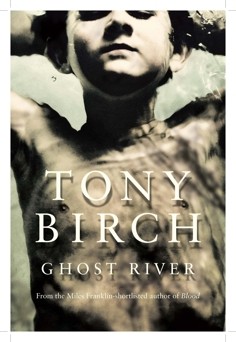
Review | Book review: Tony Birch’s Ghost River probes the ways poverty and violence can shape a life
The Australian chronicler of life on the margins has long wanted to write about his beloved Yarra and the derelicts and seekers drawn to its banks
Ghost River by Tony Birch (Penguin)


Though his short-story collections, Shadowboxing and Father’s Day, set him on the radar as a writer to watch, it was the shortlisting of his novel Blood for the Miles Franklin award in 2012 that cemented his position as a chronicler of life on the margins.
Birch describes his childhood memories of the Yarra as central to his imaginative thinking and says he longed to write a novel about his beloved river. Ghost River began as a short story that focused on the river men – the homeless alcoholics who lived on the banks of the Yarra behind the factories of Fitzroy.
In the novel, the river men are important but are secondary to the narrative. This is the story of two 13-year-old boys, Charlie “Ren” Renwick and his neighbour Sonny Brewer, who discover friendship in the slums of Collingwood and freedom by the Yarra’s polluted banks.
It is the summer of 1968. Until he meets Sonny, Ren spends his days at the library researching birds and sketching their likenesses. For Sonny, Ren’s companionship is an escape from his unpredictable and violent father. The river is neutral territory. Here they are free to swim in its dubious waters, challenge their nascent manhood by taking dangerous dives from its bridges, smoke cigarettes in car wrecks or sit around the river men’s campfire and listen to their tall tales.
Birch’s writing is often described as bleak. Telling tales about the people who live in the gritty corners of society is bound to make a writer vulnerable to such a description
Sonny’s difficult family life has made him resilient. It’s a theme Birch has tackled before in many of his short stories and again in Blood. How does a dysfunctional childhood affect the adult you become? How does domestic violence, or even the ever-present potential threat of violence, shape your person and world view?
Birch’s writing is often described as bleak. Telling tales about the people who live in the gritty corners of society is bound to make a writer vulnerable to such a description. And, in parts, Ghost River is a story of loss. Developers move into the old river area to build a freeway and the 13-year-old boys can do little to stand in the way of progress. Sonny also becomes a victim of the local gangster’s bullying ways.
But the overriding mood is one of joy and hope. The title nods to the idea that beneath the Yarra lies a ghost river that takes good souls to its heart and spits out the bad.
The Guardian

